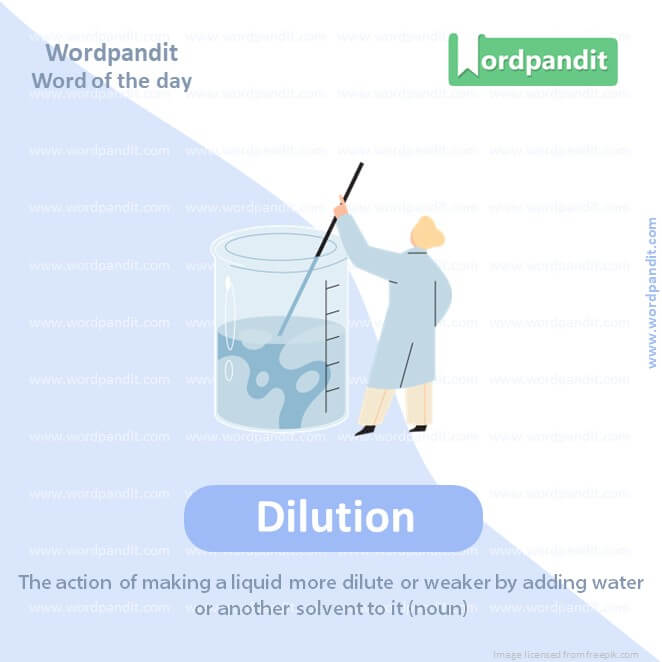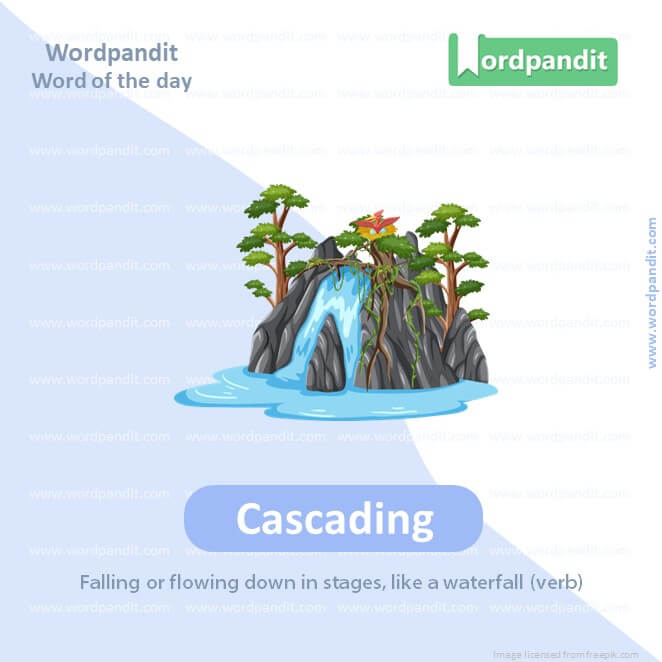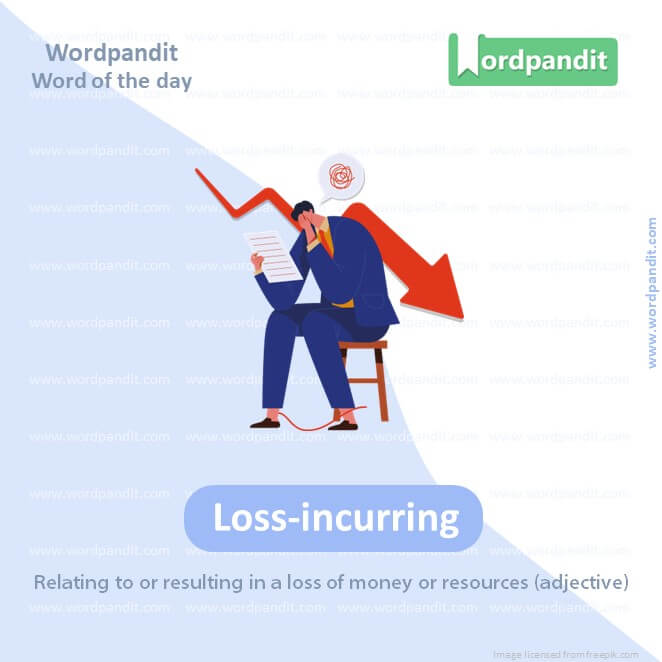Daily Vocabulary Words: List of Daily Used Words in Leading Indian Newspapers
Hi there. Welcome to this special section @ Wordpandit. Our endeavour here is straightforward: highlighting daily vocabulary words that you would come across in leading newspapers in the country. We have included the following newspapers in our selection:
• The Times of India
• The Economic Times
• Hindustan Times
• Mint
• Indian Express
We are putting in extensive work to develop your vocabulary. All you have to do is be regular with this section and check out this post daily. This is your repository of commonly used words; essentially, we are posting a list of daily used words. Hence, this has significant practical application as it teaches you words that are commonly used in leading publications mentioned above.
Visit the website daily to learn words from leading Indian newspapers.
WORD-1: Insignificance
CONTEXT: It is the insignificance it has been driven to that has made such a difference to the psyche of the people.
SOURCE: Indian Express
EXPLANATORY PARAGRAPH: Imagine you have a big, beautiful beach full of sand. If you take one tiny grain of sand away, you might not even notice it’s gone because it’s so small and doesn’t change how the beach looks or feels. That’s like something being “insignificance.” It means it’s so tiny or unimportant that it doesn’t make a big difference.
MEANING: The quality of being too small or unimportant to be worth consideration (noun).
PRONUNCIATION: in-sig-NIF-i-kance
SYNONYMS: triviality, unimportance, negligible, inconsequential, minor
USAGE EXAMPLES:
1. The insignificance of the problem made them ignore it completely.
2. She felt a sense of insignificance standing next to the towering skyscrapers.
3. In the vast universe, human life might seem of great insignificance.
4. The contribution was so small, it was of total insignificance to the fund.

WORD-2: Dilution
CONTEXT: Although so much has been achieved, militarily we need not indulge in rapid dilution of structures and concepts established through experience.
SOURCE: Indian Express
EXPLANATORY PARAGRAPH: Think about when you add water to a very sweet juice. The juice starts to taste less sweet because there’s more water in it now. This is like “dilution.” It means making something weaker or less strong by adding something else to it.
MEANING: The action of making a liquid more dilute or weaker by adding water or another solvent to it (noun).
PRONUNCIATION: dih-LOO-shun
SYNONYMS: watering down, thinning, weakening, lightening, attenuation
USAGE EXAMPLES:
1. The dilution of the paint allowed for a lighter color.
2. Adding water caused the dilution of the juice’s flavor.
3. The company’s value faced dilution after issuing more shares.
4. Dilution of the chemical was necessary for the experiment.
WORD-3: Encapsulating
CONTEXT: A stirring anthem encapsulating the essence of the Mera Pehla Vote Desh Ke Liye campaign was released recently.
SOURCE: Indian Express
EXPLANATORY PARAGRAPH: Imagine you have a toy box where you keep all your favorite toys. You put them inside so they are safe and all in one place. “Encapsulating” is like putting something into a capsule or summary so that all the important parts are included and nothing gets lost.
MEANING: The act of summarizing or condensing something into a smaller version that includes the most important parts (verb).
PRONUNCIATION: en-KAP-suh-lay-ting
SYNONYMS: summarizing, condensing, encompassing, embodying, capturing
USAGE EXAMPLES:
1. The documentary encapsulating the event was very informative.
2. Her speech encapsulating the project’s goals was clear and concise.
3. Encapsulating the essence of the story, the author wrote a powerful summary.
4. The review was perfect in encapsulating the movie’s theme.
WORD-4: Disseminated
CONTEXT: The digital age has revolutionized the way information is disseminated and opinions are formed.
SOURCE: Indian Express
EXPLANATORY PARAGRAPH: Think of when you blow a dandelion, and its seeds spread out everywhere with the wind. “Disseminated” means spreading something far and wide, like the dandelion seeds flying all over the place.
MEANING: The action of spreading something, especially information, widely; distribution (verb).
PRONUNCIATION: dis-SEM-i-nay-ted
SYNONYMS: spread, distribute, circulate, broadcast, disperse
USAGE EXAMPLES:
1. The research findings were disseminated through online journals.
2. Information was quickly disseminated on social media.
3. The seeds of the plant are widely disseminated by the wind.
4. Health advisories were disseminated across the community.

WORD-5: Cascading
CONTEXT: The cascading effect of growing participation builds upon a familiar feature of several recent campaigns and initiatives, including Beti Bachao Beti Padhao, Swachh Bharat, and Covid-19 awareness.
SOURCE: Indian Express
EXPLANATORY PARAGRAPH: Imagine a waterfall where water falls down over rocks, going from one level to another until it reaches the bottom. This is like “cascading.” It means something is falling or pouring down in stages, just like the water in a waterfall.
MEANING: Falling or flowing down in stages, like a waterfall (verb).
PRONUNCIATION: kas-KAY-ding
SYNONYMS: flowing, tumbling, spilling, plummeting, descending
USAGE EXAMPLES:
1. The cascading waterfalls were a beautiful sight.
2. Information was cascading through the company, reaching all departments.
3. The lights were cascading down the building’s facade.
4. Tears were cascading down her cheeks during the emotional movie.
WORD-6: Consumables
CONTEXT: The household consumption basket consisted of three major categories — food items, consumables and durable goods.
SOURCE: Indian Express
EXPLANATORY PARAGRAPH: Think about things like your crayons, snacks, or juice boxes. Once you use them, they’re gone because you’ve eaten the snacks or the crayons have gotten too small from coloring. “Consumables” are items like these that you use up, and then you need to get more.
MEANING: Items that are intended to be used up and then replaced (noun).
PRONUNCIATION: kuhn-SOOM-uh-buls
SYNONYMS: expendables, supplies, goods, necessities, provisions
USAGE EXAMPLES:
1. The office orders consumables such as paper and ink cartridges every month.
2. Make sure to stock up on consumables for the printer before starting a large project.
3. In the laboratory, consumables like gloves and test tubes are constantly in demand.
4. They calculated their monthly budget to include food and other household consumables.

WORD-7: Allocation
CONTEXT: The MPCE data shows only the consumption pattern of the entire household and does not throw light on intra-household allocation of food.
SOURCE: Indian Express
EXPLANATORY PARAGRAPH: Think of when you have a box of cookies, and you decide who gets how many cookies. “Allocation” is like that. It’s deciding how to divide something, like cookies or toys, so everyone gets a part of it. It helps make sure that everything is shared fairly.
MEANING: The process of distributing or assigning something according to a plan (noun).
PRONUNCIATION: al-lo-KAY-shun
SYNONYMS: distribution, assignment, allotment, apportionment, division
USAGE EXAMPLES:
1. The allocation of funds to different departments was carefully planned.
2. Resource allocation is crucial in project management to avoid delays.
3. Allocation of seats for the concert was done on a first-come, first-served basis.
4. The charity ensures fair allocation of donations to those in need.

WORD-8: Loss-incurring
CONTEXT: the government should be seen as an investment in public health and not as a loss-incurring liability.
SOURCE: Indian Express
EXPLANATORY PARAGRAPH: Imagine you have a lemonade stand, and you spend your money to buy lemons and sugar. But if it rains and no one buys your lemonade, you don’t get your money back. That’s what “loss-incurring” means. It’s when someone does something but ends up losing money instead of making it.
MEANING: Relating to or resulting in a loss of money or resources (adjective).
PRONUNCIATION: loss-IN-kur-ring
SYNONYMS: unprofitable, deficit-producing, loss-making, financially damaging, costly
USAGE EXAMPLES:
1. The loss-incurring project was eventually shut down to save the company money.
2. Despite being loss-incurring, the research had significant scientific value.
3. They decided to discontinue the loss-incurring product line.
4. Strategies were developed to turn the loss-incurring operations around.

WORD-9: Mulling
CONTEXT: A section of India’s ruling right-wing establishment appears to be mulling over this.
SOURCE: Indian Express
EXPLANATORY PARAGRAPH: Imagine you’re trying to decide which ice cream flavor to choose, and you think really hard about it because you want the best one. “Mulling” is just like that. It’s when you think about something carefully, taking your time to make a decision or come up with an idea.
MEANING: To think about deeply and at length (verb).
PRONUNCIATION: muhl-ing
SYNONYMS: pondering, contemplating, considering, deliberating, reflecting
USAGE EXAMPLES:
1. She spent the evening mulling over the options for her future career.
2. The team is mulling a strategy to increase sales next quarter.
3. I’ve been mulling over his proposal; it has some interesting points.
4. Mulling the problem didn’t seem to bring him any closer to a solution.
WORD-10: Pejoration
CONTEXT: It is being written and talked about a lot these days, not with the usual pejoration, but with a sense of either sympathy or fait accompli.
SOURCE: Indian Express
EXPLANATORY PARAGRAPH: Imagine if someone took your favorite superhero’s name and started using it in a way that sounds bad or mean. That’s what “pejoration” means. It’s when a word or the way we talk about something changes over time to mean something not as nice or positive.
MEANING: The process by which a word’s meaning worsens or deteriorates in sense or connotation (noun).
PRONUNCIATION: pej-uh-RAY-shun
SYNONYMS: degradation, devaluation, disparagement, derogation, worsening
USAGE EXAMPLES:
1. The term “nerd” has undergone pejoration and then reclamation by the tech community.
2. Language scholars often study the pejoration of words over centuries.
3. The pejoration of certain terms reflects changes in societal attitudes.
4. He was interested in the pejoration of slang terms within subcultures.
Vocabulary Synonyms
In the intricate weave of language learning, ‘vocabulary synonyms’ emerge as a key element that adds depth and variety to expression. These different words with similar meanings enrich our vocabulary, enabling us to communicate with precision and clarity. However, grasping ‘vocabulary synonyms’ successfully warrants a systematic approach.
When approaching ‘vocabulary synonyms’, context is your compass. Engage with various reading materials like novels, newspapers, and digital content to explore and understand how these synonyms are used in different situations. This exposure will fortify your comprehension of ‘vocabulary synonyms’ and their usage nuances.
Employing memory-enhancing techniques can cement your grasp on ‘vocabulary synonyms’. Employing flashcards is an effective method where one side contains the word you know, and the other side has its synonyms. Also, creating mind maps, linking the known word to its various synonyms, can be an engaging way to learn ‘vocabulary synonyms’.
To master ‘vocabulary synonyms’, take an active role in application. Regular conversations, written communications, digital interactions – all of these offer ample opportunities to utilize learnt synonyms. This practice refines your application and accelerates internalization of ‘vocabulary synonyms’.
Embracing language exchange platforms or engaging with native speakers can provide invaluable feedback on the usage of ‘vocabulary synonyms’. This interaction can further enhance your understanding of the cultural idiosyncrasies of word usage.
In conclusion, learning ‘vocabulary synonyms’ is a rewarding pursuit that adds layers of complexity to your language skills. A thoughtful blend of diversified resources, memory tools, practice, and interactive learning can make the task of mastering ‘vocabulary synonyms’ an enjoyable and fruitful journey. Every synonym learnt paints your vocabulary with different shades of understanding, making your language canvas all the more vivid and spectacular!







